NEW POLL: Tillis Supporters 50% More Likely to Cite Foreign Affairs as Most Important Issue; Hagan Supporters 57% More Likely to Cite Economy
NC State students at Pack Poll team up with American Insights to analyze open-ended important issue responses from North Carolina voters, find telling discrepancies between senate candidates’ support bases; NC remains conservative on role of government
Our new American Insights data show that North Carolina voters remain fundamentally conservative regarding the role of government, with 51% saying it is doing too much and only 38% wishing government would do more. Meanwhile, nearly two-thirds of voters (64%) say they care more about economic issues than social issues (26%). We also asked voters an open-ended question on what they believe is the most important issue facing the nation. Political Science students at North Carolina State University’s Pack Poll, under the direction of Dr. Michael Cobb, who authors WRAL’s Margin of Error polling blog, categorized and analyzed the responses for American Insights.
“On the fundamental question of what role government should play in our lives, North Carolina remains a conservative state with a majority of voters believing the government is doing too many things that should be left to individuals and businesses,” said American Insights Director Pearce Godwin. “The students at NC State who operate the only campus poll in the nation, Pack Poll, uncovered telling differences in issue priorities between supporters of U.S. Senate candidates Kay Hagan and Thom Tillis. While the two bases are largely motivated by the same issue set, the students found Hagan’s supporters more likely to cite the economy as most important while more of Tillis’ base is focused on foreign affairs. Among those in each base who cited other domestic issues, the Tillis voters are much more focused on immigration, while Hagan’s give a lot more attention to education. We expect the campaigns to cover all of these issues in targeted messaging over the final weeks of the race.”
The economy continues to be the most important issue for North Carolina voters, and other domestic issues trump foreign policy. Including the economy, 60% of Likely Voters (LVs) cite domestic issues as most important, compared to 21% who cite foreign affairs. Hagan and Tillis supporters are largely voting on the same issue set this year; however, Tillis supporters are 50% more likely to cite foreign affairs (27-18) while Hagan voters are 57% more likely to cite the economy (44-28) as most important. 8% of Tillis supporters cite morality or religion, while such mentions were virtually absent from Hagan supporters.
Among the 36% of LVs who cited the economy, 38% specified jobs and unemployment. Hagan supporters were 23% more likely to cite jobs and unemployment (43-35), while Tillis supporters were 3.6 times more likely to cite debt and deficit (18-5). Among the 21% who said foreign affairs, terrorism was most cited, at 34%. Hagan supporters were 27% more likely to cite terrorism (38-30) and three times more likely to cite war and conflict (30-10). Tillis supporters, on the other hand, were nearly three times more likely to cite national security (30-11). Among the 25% who named other domestic issues, Hagan supporters are 7.3 times more likely to name education (44-6), while Tillis backers are 7.3 times more likely to name immigration (51-7). Slightly more Tillis supporters named healthcare (22-18). Young voters were least likely to name foreign policy as most important. Men are more likely to see the economy as most important, while women are more likely to cite other domestic issues.
METHODOLOGY: American Insights surveyed 600 Registered Voters in North Carolina between September 5th and 10th, then determined 459 to be Likely Voters based on four turnout questions. The margin of error is ±4.0% for Registered Voters and ±4.6% for Likely Voters. ‘Triple Helix’ mixed modal surveying methodology included 50% live landline phone, 20% cell phone and 30% online. All respondents were asked questions concerning basic demographics and the sample was designed to accurately reflect the actual registered voter population in North Carolina according to age, race, gender, geographic area and party registration. On party registration, the registered voter sample precisely matches the registered voter population at 42% Democrat, 31% Republican, 27% Unaffiliated.
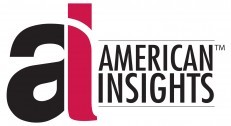
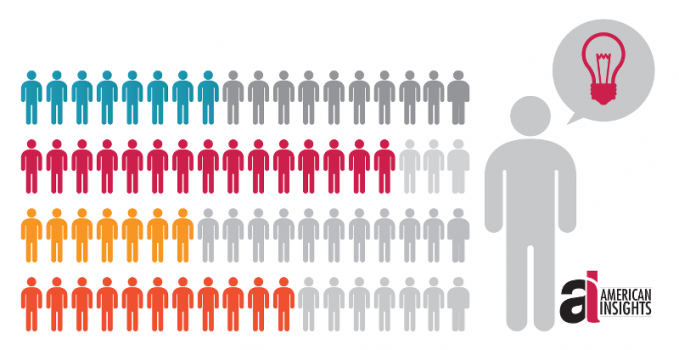
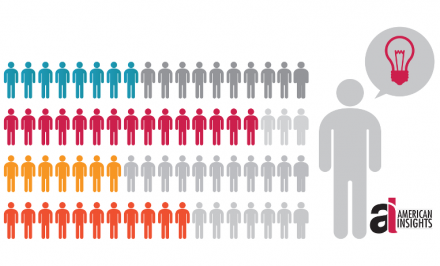
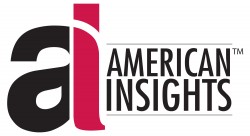
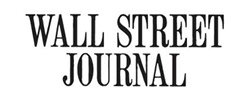


















SOCIAL COUNTER
To RSS Feed
Followers
Fans